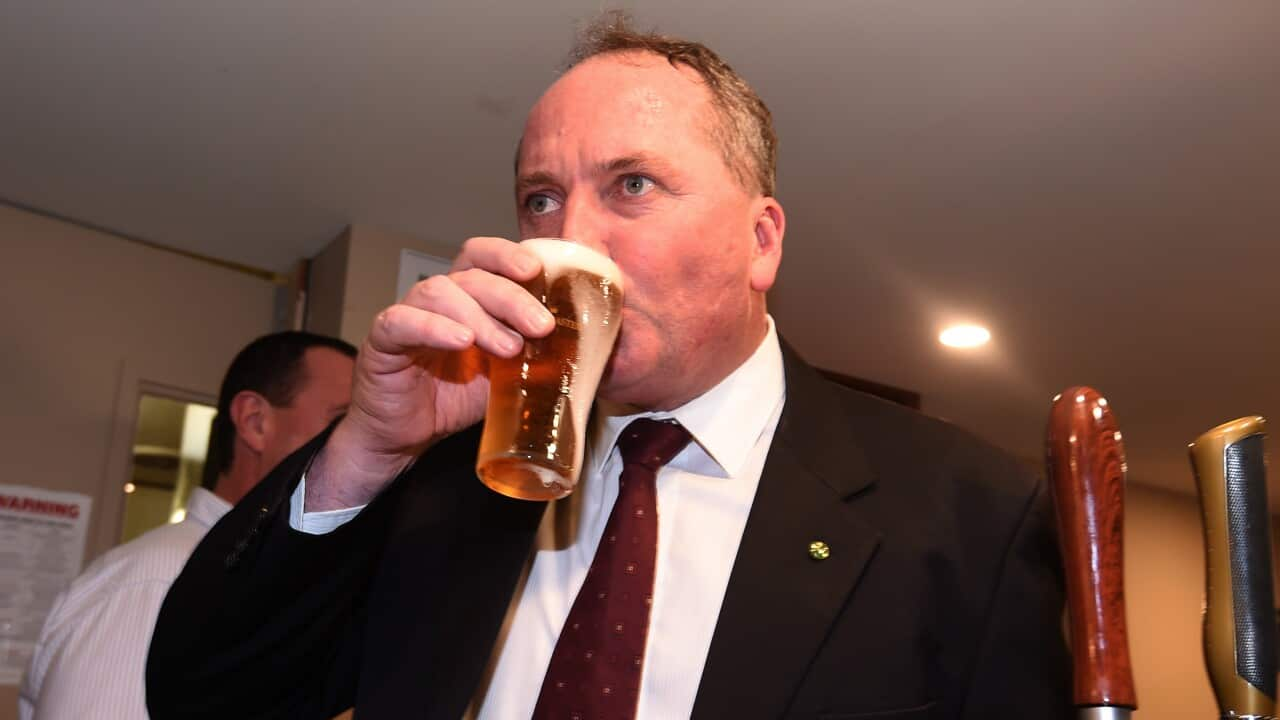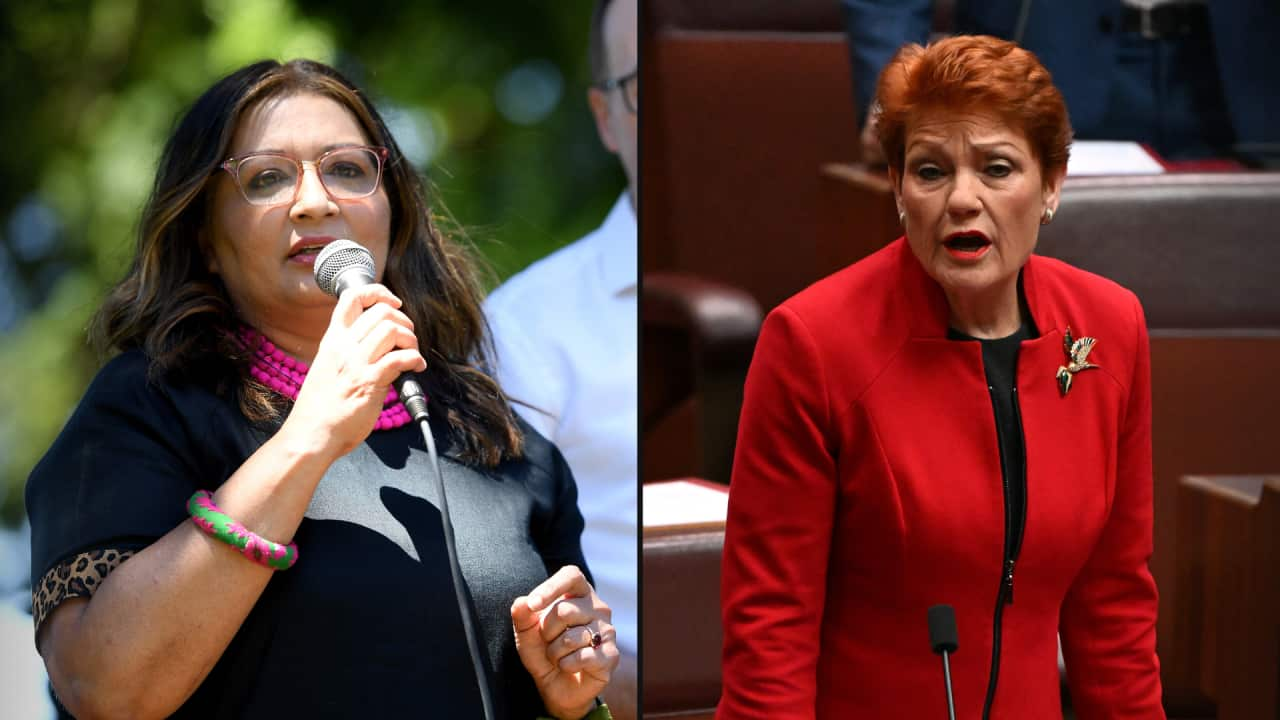Key Points
- Barnaby Joyce has faced scrutiny after a video emerged of him lying on the pavement and slurring profanities.
- Zali Steggal says alcohol consumption in parliament must be curbed by introducing breath testing as a "deterrent".
- Neither Anthony Albanese nor Peter Dutton have expressed support for a ban on politicians drinking at work.
Why should Australian politicians be able to drink alcohol while making important decisions?
It's a question being raised by over 650 signatories of a new Change.org petition calling for a ban on alcohol in Parliament House.
They want the rules to be brought into line "with every other workplace".
A similar query is being raised by many others in the wake of attention on two federal politicians whose use of alcohol has sparked a debate about parliament workplace culture, and even calls for random breath tests in parliament.
Former deputy prime minister Barnaby Joyce has revealed he's given up alcohol for Lent and slurring profanities into his phone was circulated widely.
He has blamed a mix-up of medication and alcohol for the incident.
Meanwhile, his Nationals party colleague Perin Davey has admitted to drinking a couple of glasses of red wine before she was heard slurring her words during a recent Senate hearing, though she insists she wasn't drunk at the time.
She later said her slurred speech was caused by a medical condition and an operation.
"I had an abscess behind the tonsils that had completely erupted and gone through my facial muscles and tissues in my throat muscles and I had to have two lots of emergency surgery," she told Bathurst radio station 2BS on Tuesday.
"Although I acknowledge when I'm tired or if I've had a glass of wine, or if I'm stressed, my throat catches ... and I'll have a coughing fit, sometimes I slur words."
This MP thinks we should breath-test politicians
Independent MP Zali Steggal says alcohol consumption in Parliament House is "unlimited and unmonitored" and must be curbed by introducing breath testing as a "deterrent".
"As soon as you have a risk of getting caught, it changes behaviour," she told ABC News.
"People have had enough of politicians thinking there's different standards that apply to them in Parliament House than what applies in other workplaces."
What do the prime minister and Opposition leader think?
Prime Minister Anthony Albanese says alcohol isn't allowed in his office — a rule that was imposed by his staffers "a long time ago".
However, he isn't too keen on the idea of a booze ban on parliamentarians, saying there were often events involving alcohol at Parliament House, and common sense should apply.
People need to take responsibility for their own actions, he said.
"People will make judgements about the behaviour that we've seen, because quite clearly, it doesn't meet standards out there that people expect," Albanese said.
"We need to show respect for people who put us there."
Opposition leader Peter Dutton said he agreed with the prime minister on the matter, adding that "a change of behaviour" was required from "some individuals".
"But, when you get a workplace that swells when parliament sits to a couple of thousand people who come from all over the country ... you are going to have instances from time to time," he said.
"Now, that doesn't excuse it, but it says that 99 per cent of people are doing the right thing, and you need to be extra careful. I think that's the lesson that you can take out of it."
Do most workplaces have bans on alcohol?
Some companies test their workers for usage of alcohol and illicit substances, particularly if a worker could kill or seriously injure themselves or someone else, according to Safe Work Australia.
Safe Work, which develops national policy to improve work health and safety, specifies that all workers must be fit and well enough to do their job, not be under the influence of alcohol or drugs, and not use alcohol or illegal drugs while at work.
The majority of employees work for smaller companies that don't formally have bans on alcohol — except for safety and construction jobs that require, for example, the handling of machinery and equipment, according to David Cheng, a senior lecturer at the Australian National University's Research School of Management.
Cheng said it took time to write in policies banning alcohol but workplace rules were generally clear about what's considered appropriate behaviour.
"I think things like drinking alcohol, a lot of companies do not police it, unless it's do to with operating heavy machinery," Cheng told SBS News.
He said that, for some types of work, bans on alcohol were hard to police. For instance, when client meetings were held over lunch or dinner.
James Warn from the School of Business at UNSW Canberra said he'd seen the consumption of alcohol in workplaces reduce dramatically over the years.
But he said instituting bans on alcohol at Parliament House was a simplistic answer to a complex issue.
"There are a lot of unusual hours (at parliament) and that makes it more complicated," Warn told SBS News.
"Simple solutions ... might send good to different people, but ... it's probably a more complicated environment."











